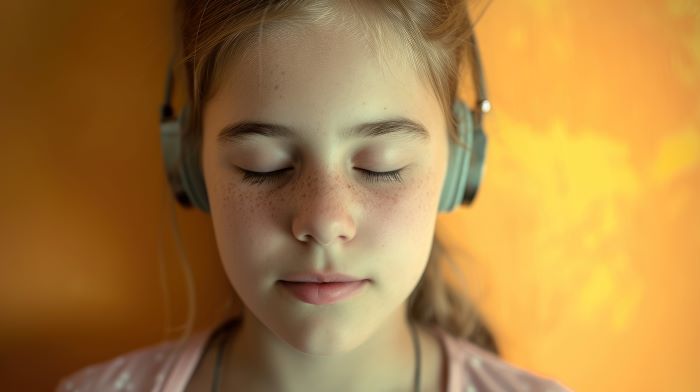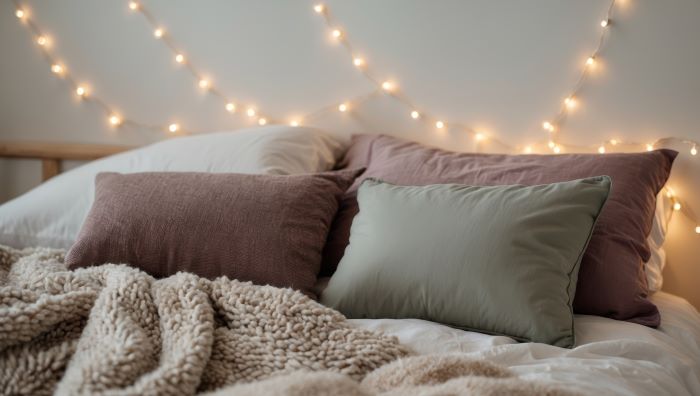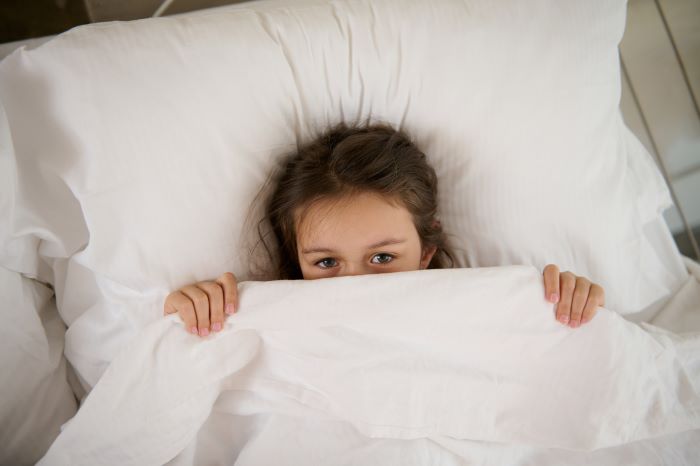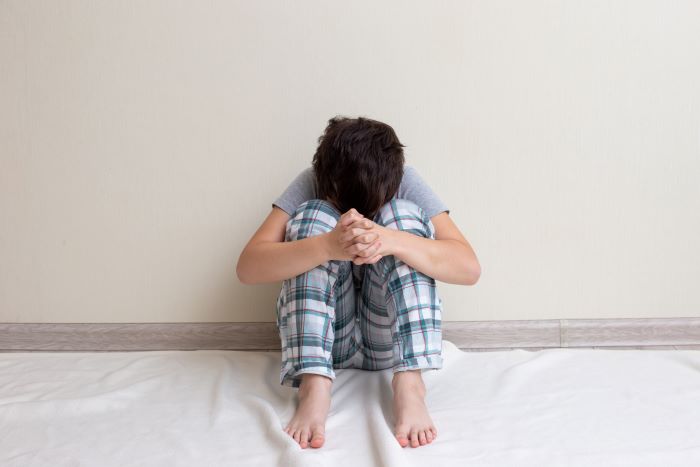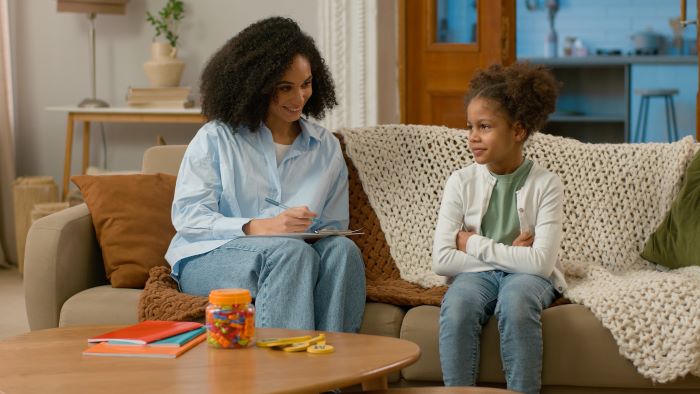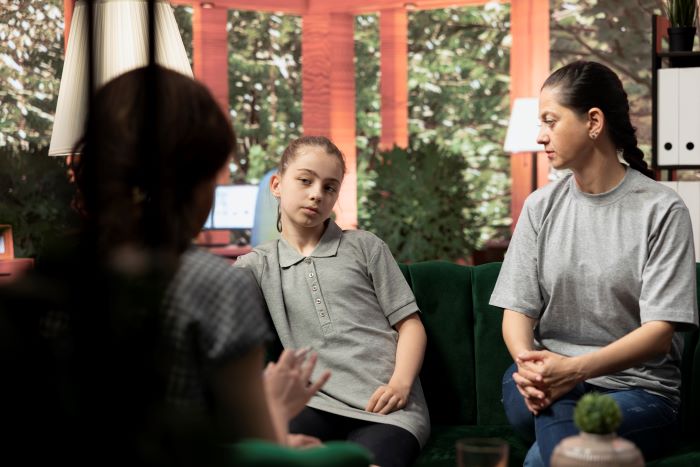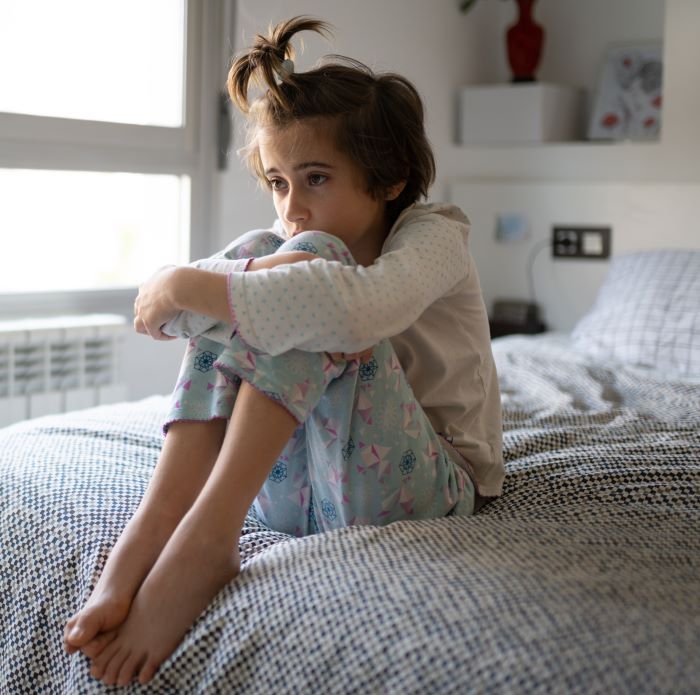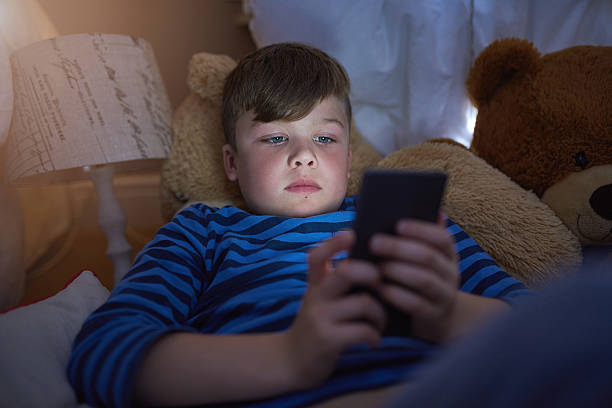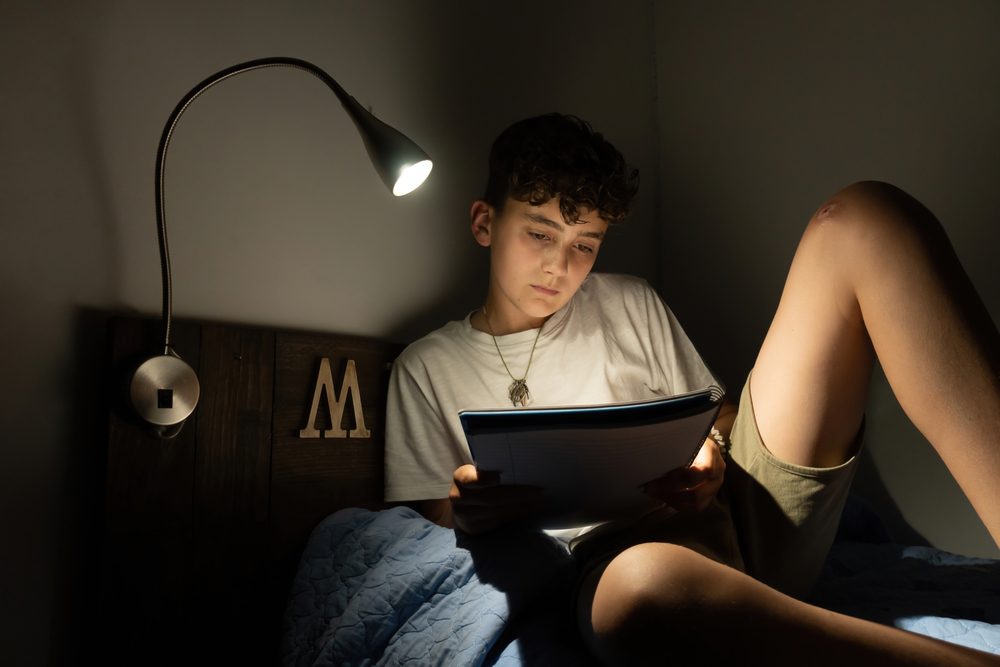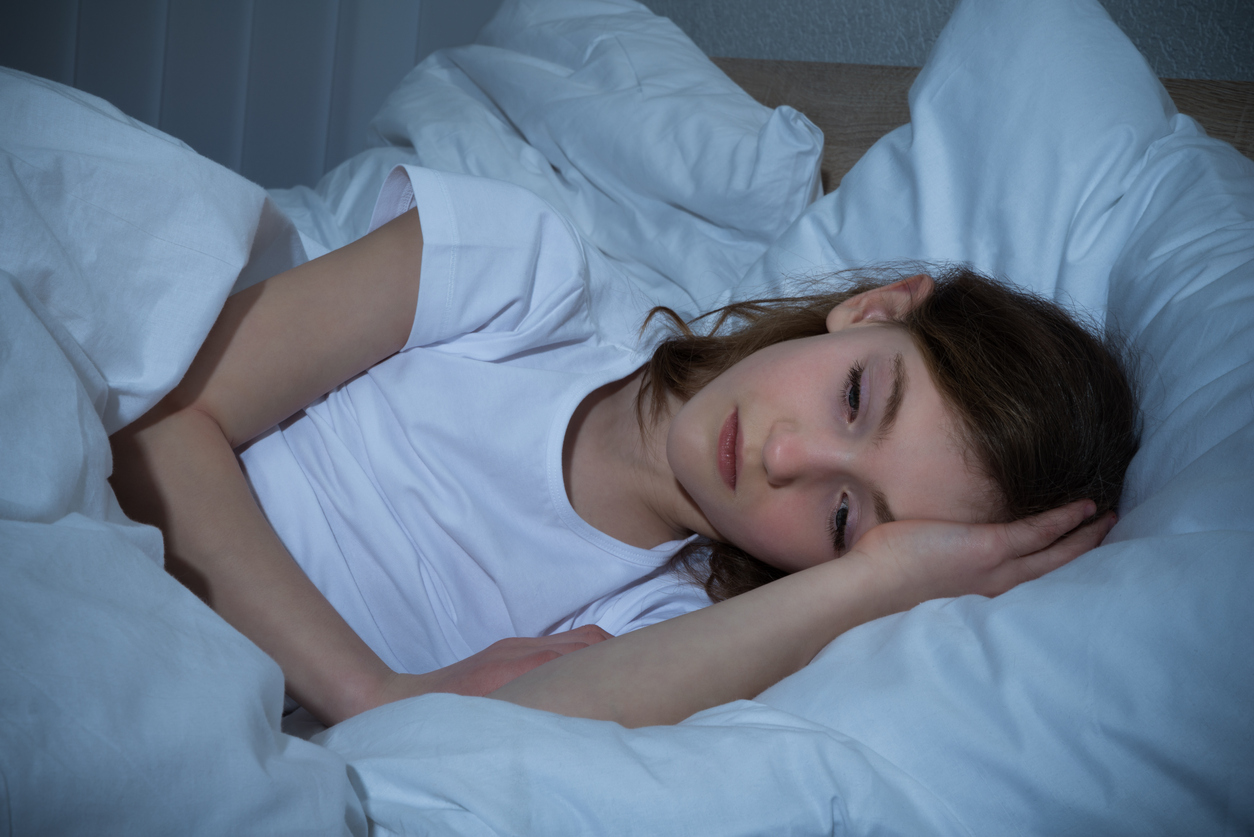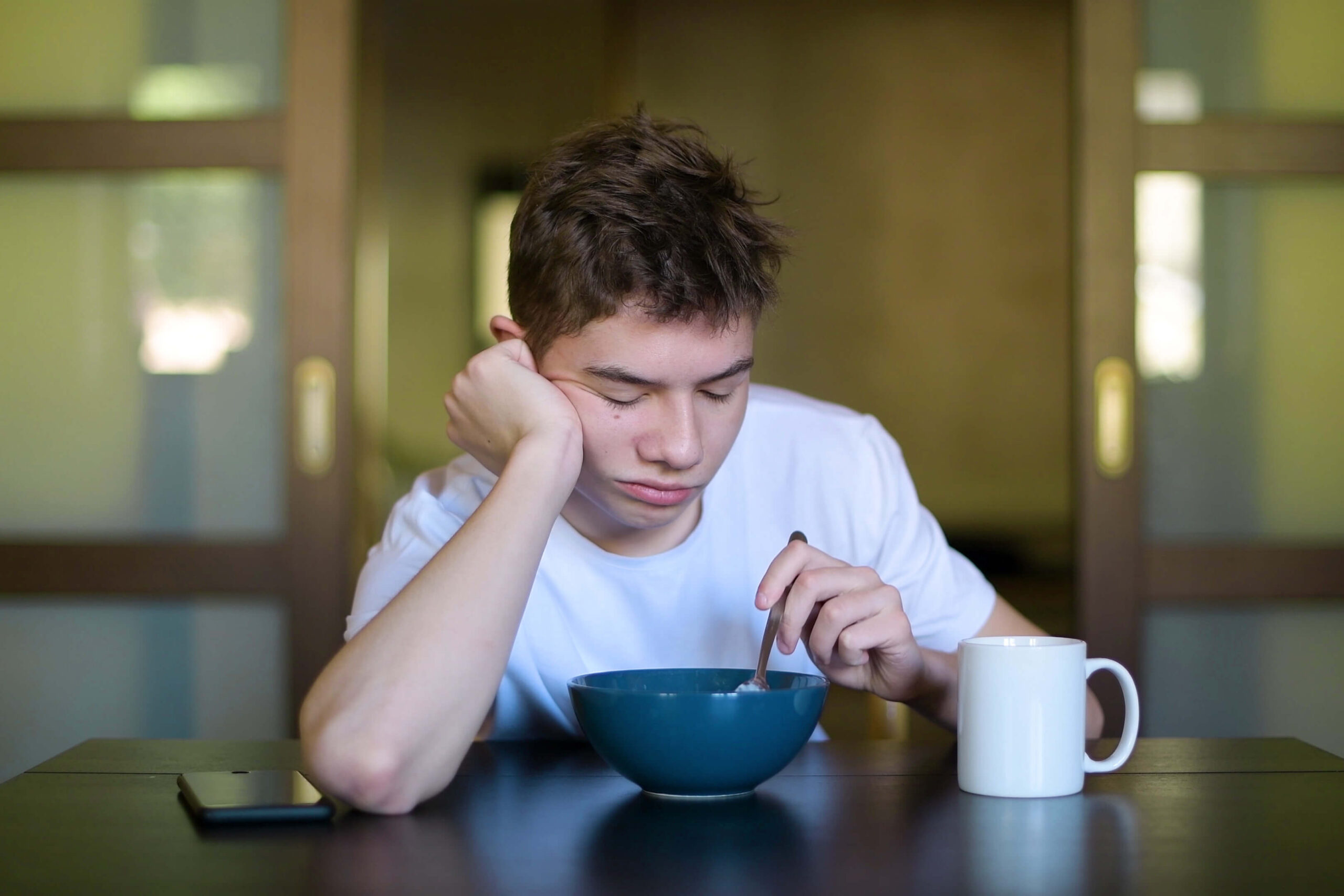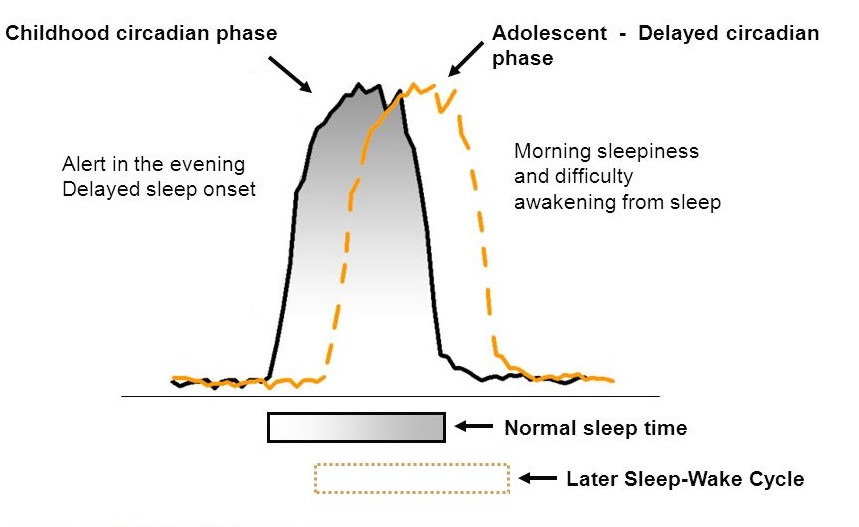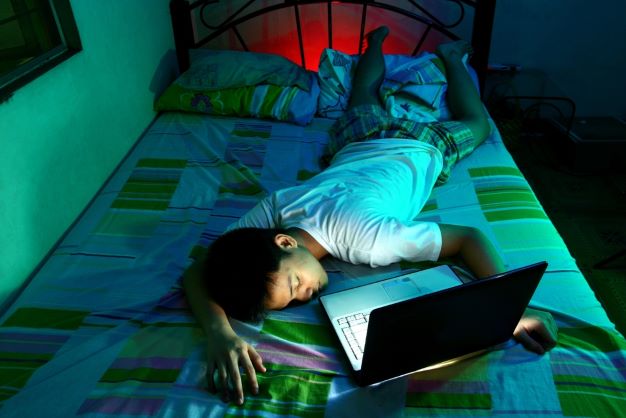A Cosy Bedtime Routine for Your School-Aged Child
Bedtime should be a calm, cosy, and predictable time for children, helping them unwind from the day and settle in for a good night’s sleep. But in reality, it can often feel like a battle—whether it’s screens keeping them awake, bedtime worries creeping in, or just struggling to switch off.
If your child is restless at bedtime or wakes up groggy in the morning, a structured, gentle bedtime routine can make all the difference.
Here’s how to set up a relaxing evening routine that works.
Screens & Bedtime: When to Switch Off?
Why It Matters: While blue light has long been blamed for sleep problems, the latest research suggests it’s not the light itself—it’s how screens keep children engaged, alert, and awake long past their natural bedtime.
What the Research Says:
- The more time children spend on screens before bed, the later their bedtime shifts and the less sleep they get overall.
- Scrolling, gaming, and social media keep the brain in a high-alert state, making it harder to wind down.
- Keeping a phone on at night—especially with notifications active—leads to disrupted sleep and poorer sleep quality.
What Parents Can Do:
- Set a screen curfew – ideally one hour before bed.
- Keep phones and tablets out of the bedroom overnight.
- Swap screens for quiet activities – like reading, colouring, or a chat about the day.
Tip: Netflix, YouTube, and TikTok can be particularly tricky as they encourage endless scrolling. Try using a timer or ‘wind-down’ mode to help your child log off.
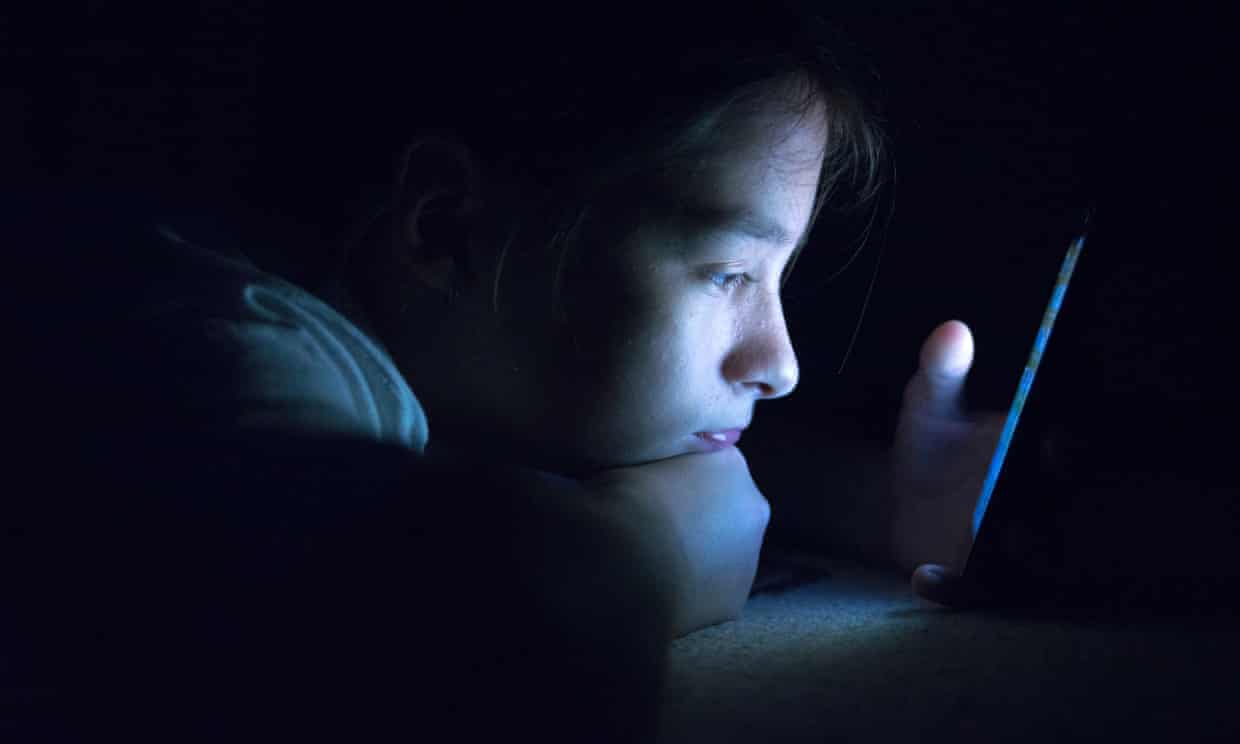
Helping an Anxious Child Wind Down
Why It Matters: Some children struggle to switch off because of worries and racing thoughts. If your child gets anxious at bedtime, their brain stays in high-alert mode, making it difficult to relax.
What Helps:
- Have a worry journal – let them write or draw any worries before bed.
- Set up a worry time earlier in the evening – so bedtime isn’t spent overthinking.
- Teach calm breathing techniques – try 3-4-5 breathing (inhale for 3, hold for 4, exhale for 5).
- Try mindfulness or gentle yoga – even a few minutes can make a big difference.
What & When Should Children Eat Before Bed?
Why It Matters: Eating too close to bedtime can cause restless sleep, while certain foods help promote relaxation.
What to Do:
- Last big meal – at least 2 hours before bed.
- Good bedtime snacks – a banana with peanut butter, warm milk, or yoghurt.
- Avoid sugary foods & caffeine – including chocolate, fizzy drinks, and tea!
Exercise & Sleep: Getting the Balance Right
Why It Matters: Regular movement helps burn off excess energy and promotes deeper, more restorative sleep. Engaging in physical activity earlier in the day is ideal, as exercising too close to bedtime can stimulate the body and make it harder to fall asleep. Ideally, it’s best to stop exercising 2 hours before bedtime.
What Helps:
- Encourage outdoor play or exercise in the afternoon.
- Avoid high-energy activities 2 hours before bed.
- Try gentle stretching or relaxation exercises before sleep.
Making the Bedroom Sleep-Friendly
Why It Matters: A cluttered, bright, or noisy bedroom can make it harder for children to settle. A cosy, calming space tells their brain it’s time to switch off.
Simple Fixes for a Sleep-Friendly Bedroom:
- Dim the lights an hour before bed – this helps with melatonin production.
- Keep the bed solely for reading and sleeping – no homework, screens, or gaming in bed!
- Use warm, soft lighting – swap bright overhead lights for lamps or fairy lights.
- Check the temperature – around 18°C is ideal for sleep.
The Magic of a Warm Bath Before Bed
Why It Matters: A warm bath 30-60 minutes before bed helps relax muscles and lower stress, making it easier to fall asleep. It also mimics the body’s natural temperature drop before sleep.
How to Make It Extra Relaxing:
- Add a few drops of lavender oil to the bath.
- Follow up with a bedtime story.
- Snuggle up with cosy PJs and a cuddle.
Avoiding Bedtime Battles & Discussions
Why It Matters: Arguments, last-minute homework, or overstimulation can trigger stress hormones and have an alerting effect, making bedtime a struggle.
How to Keep Bedtime Calm & Positive:
- Finish homework at least 1 hour before bed.
- Avoid difficult conversations late at night – save them for the morning.
- Keep the evening low-key – music, stories, or quiet play.
Why a Parent-Led Bedtime Helps
Why It Matters: Studies show that when parents take an active role in bedtime, children go to bed earlier and have more sleep.
How to Lead a Calm Bedtime:
- Keep bedtime at the same time every night (including weekends!).
- Spend 10-15 minutes of quiet connection before the start of the bedtime routine – reading, chatting, or a cuddle.
- Offer gentle reassurance – a consistent routine makes children feel safe and secure.
The Power of Morning Light
Why It Matters: Morning sunlight helps reset the body clock, making it easier to fall asleep at night.
How to Help:
- Encourage outdoor time in the morning (even just walking to school).
- Open curtains as soon as they wake up.
- Let natural light fill the breakfast area.
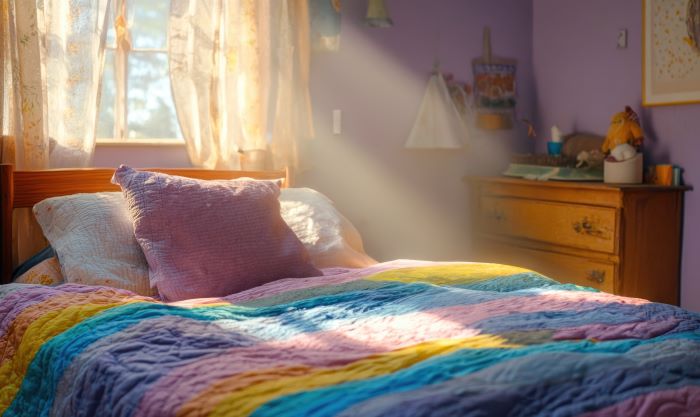
Final Thoughts: A Calm Bedtime = Happier Mornings!
A consistent, soothing bedtime routine can transform your child’s sleep. By keeping screens in check, managing worries, adjusting diet and exercise, and creating a cosy wind-down routine, bedtime can become a calm and comforting part of the day.
Need help with your child’s sleep? We’ve supported hundreds of UK families in creating better sleep habits. Get in touch to find out how we can help!
Written by Mandy Gurney February 2025

